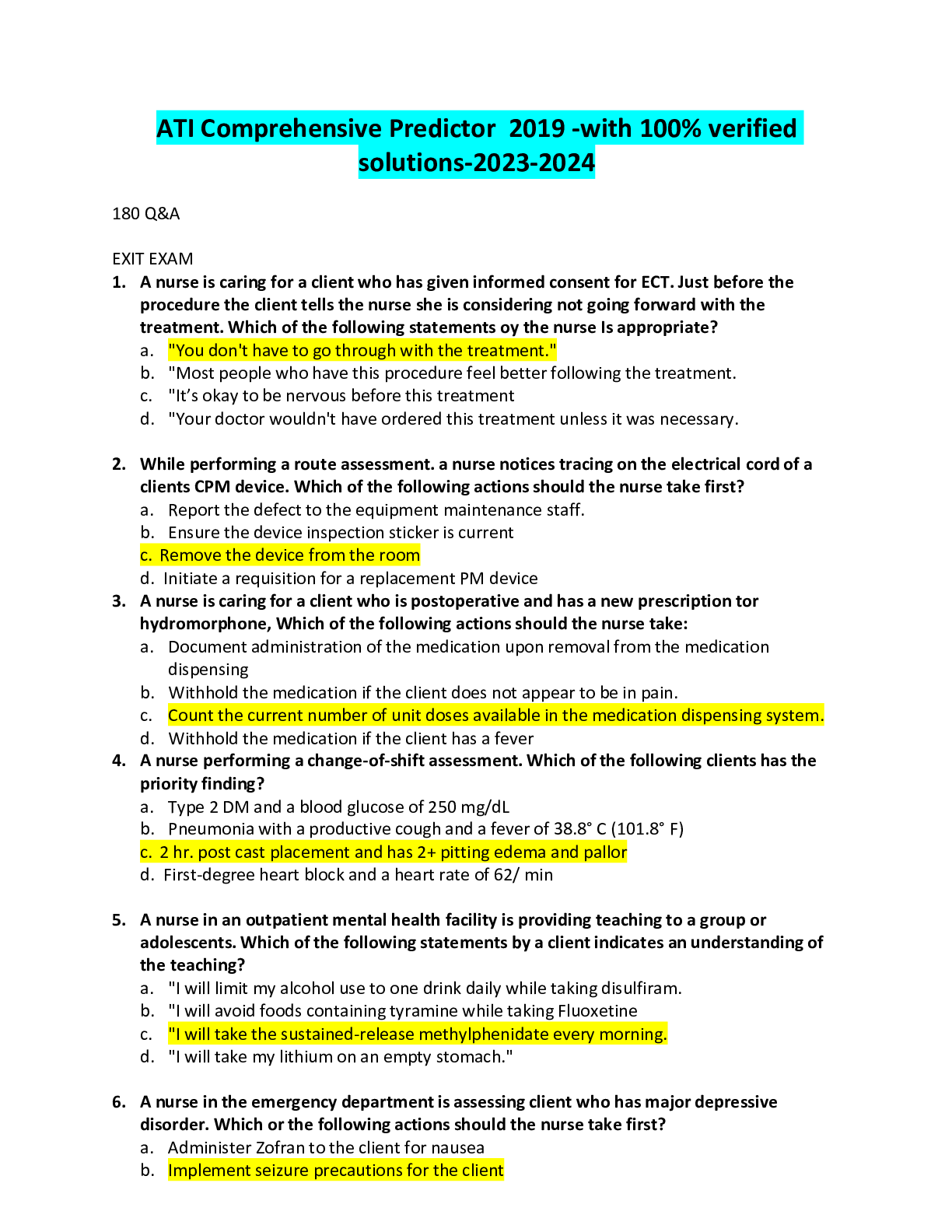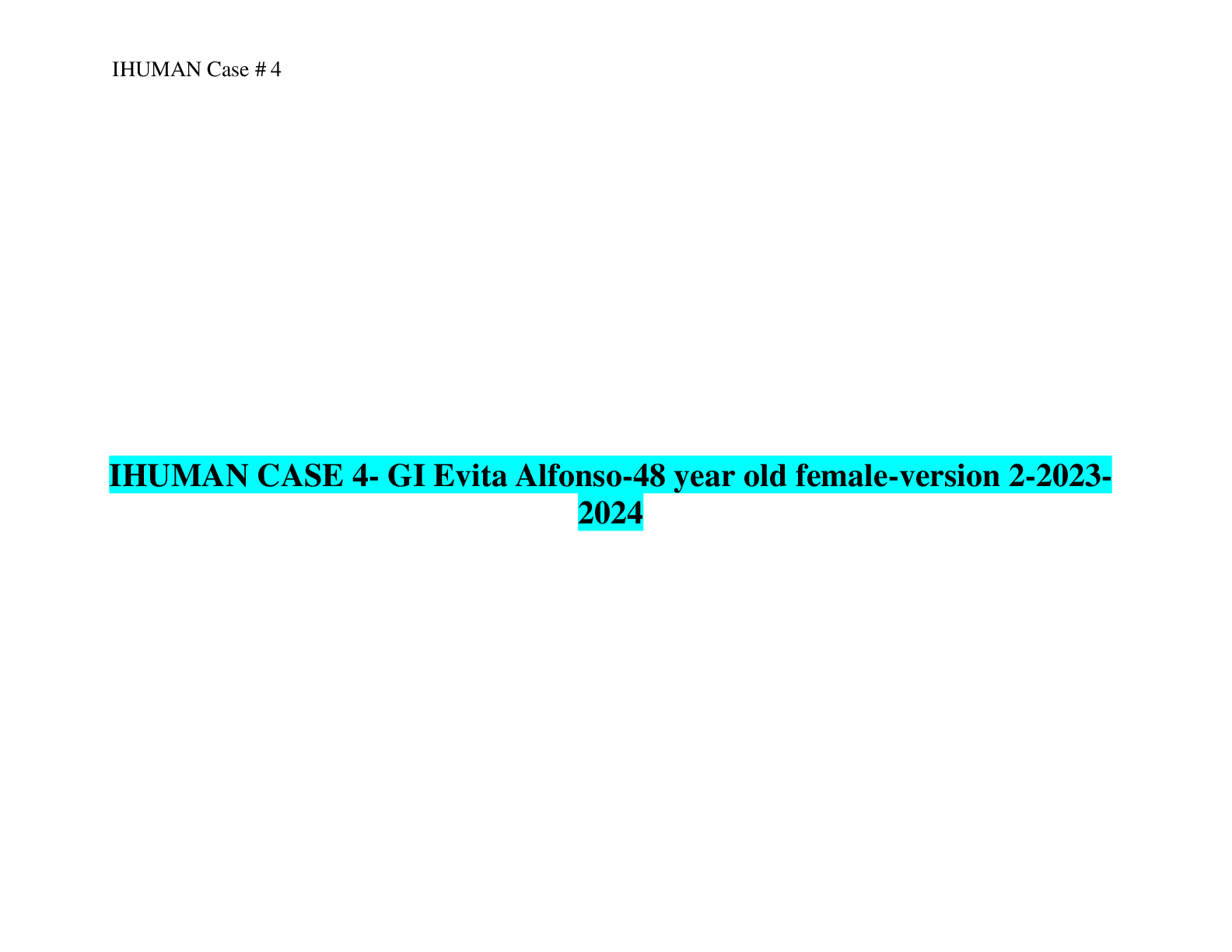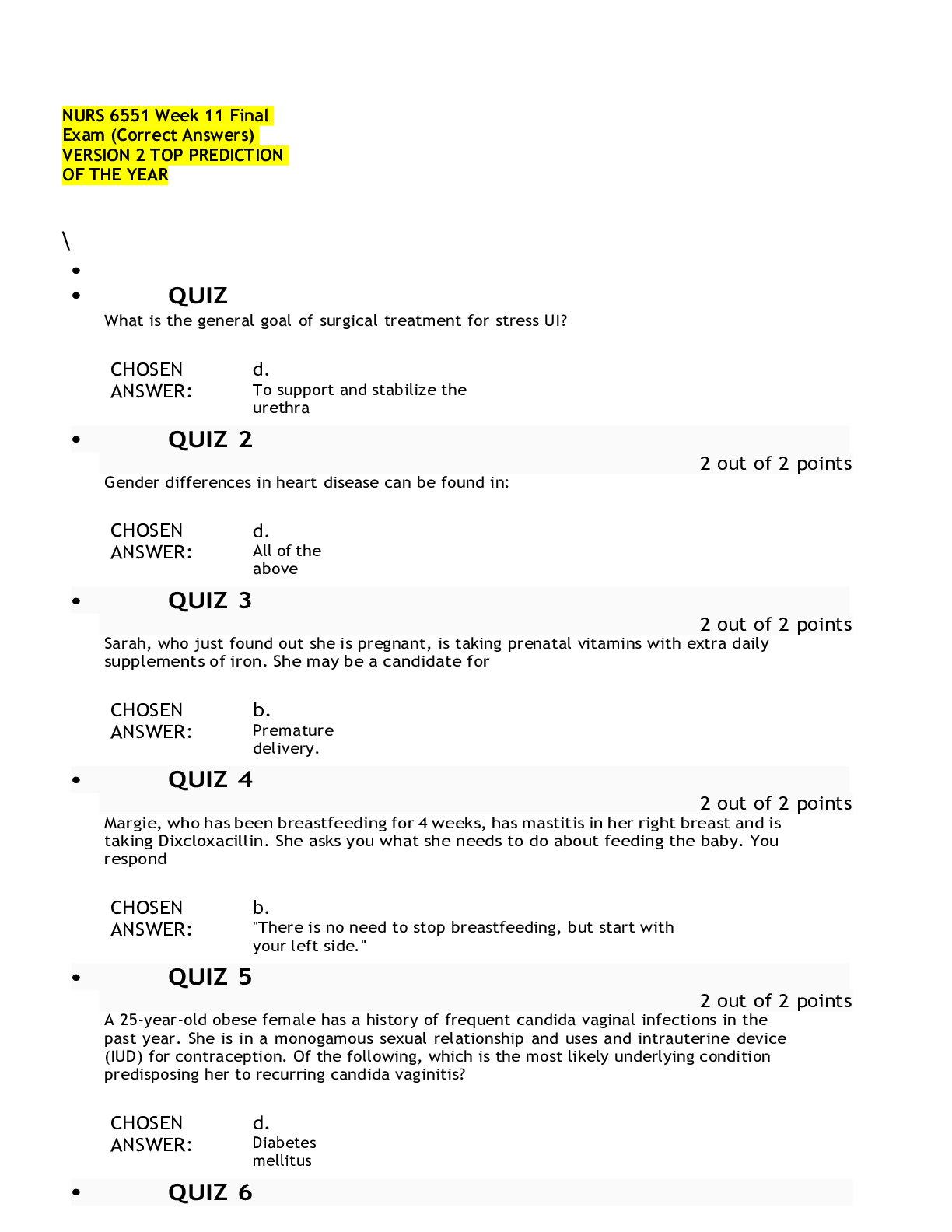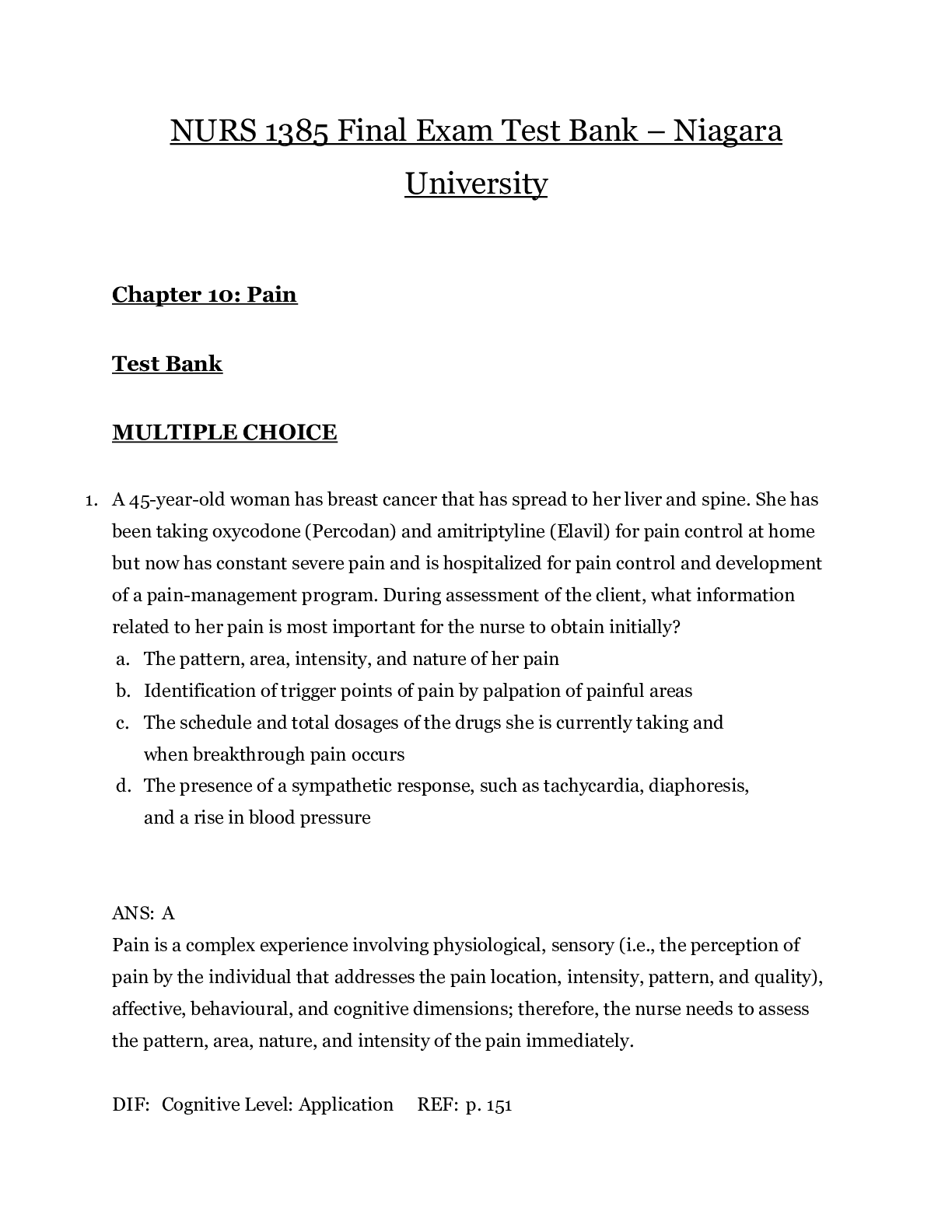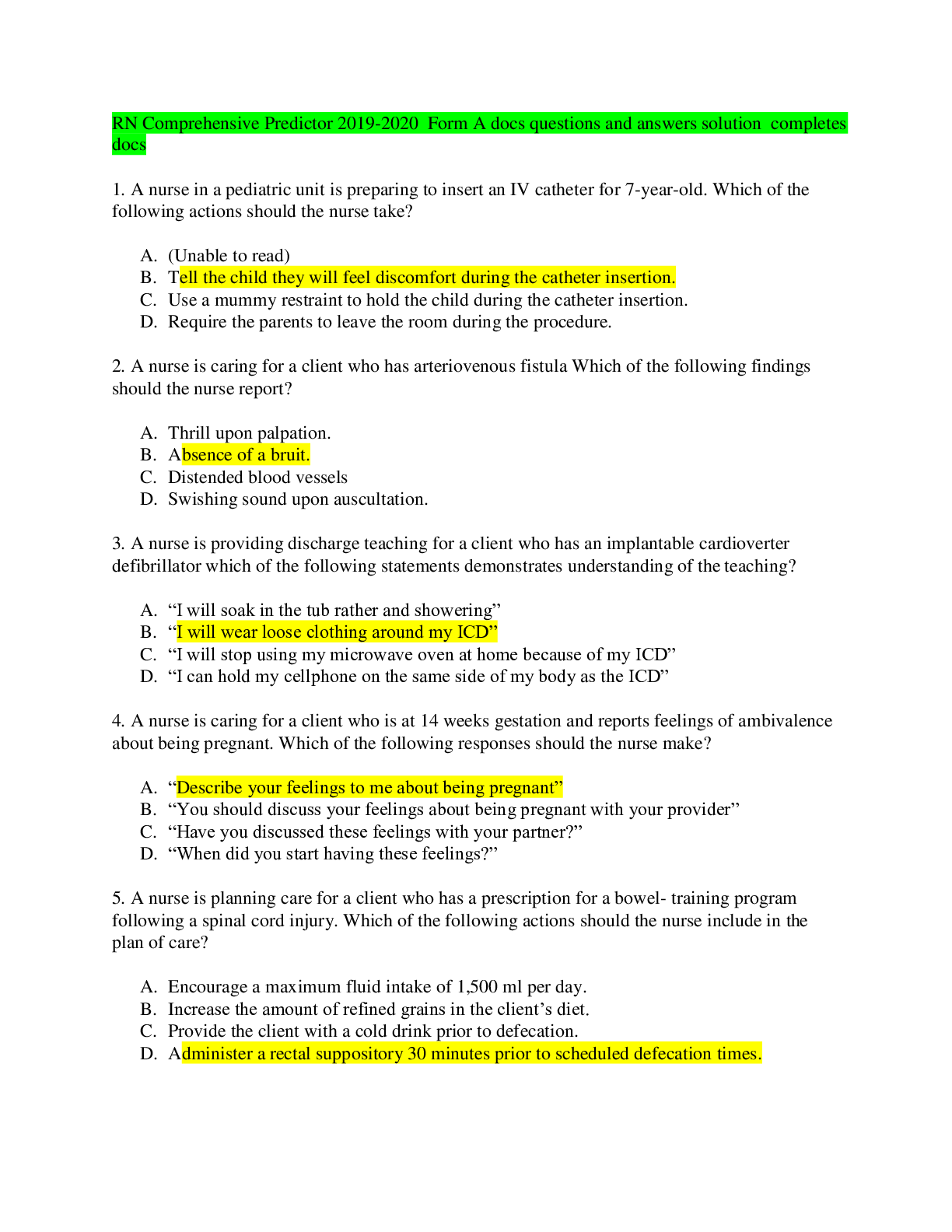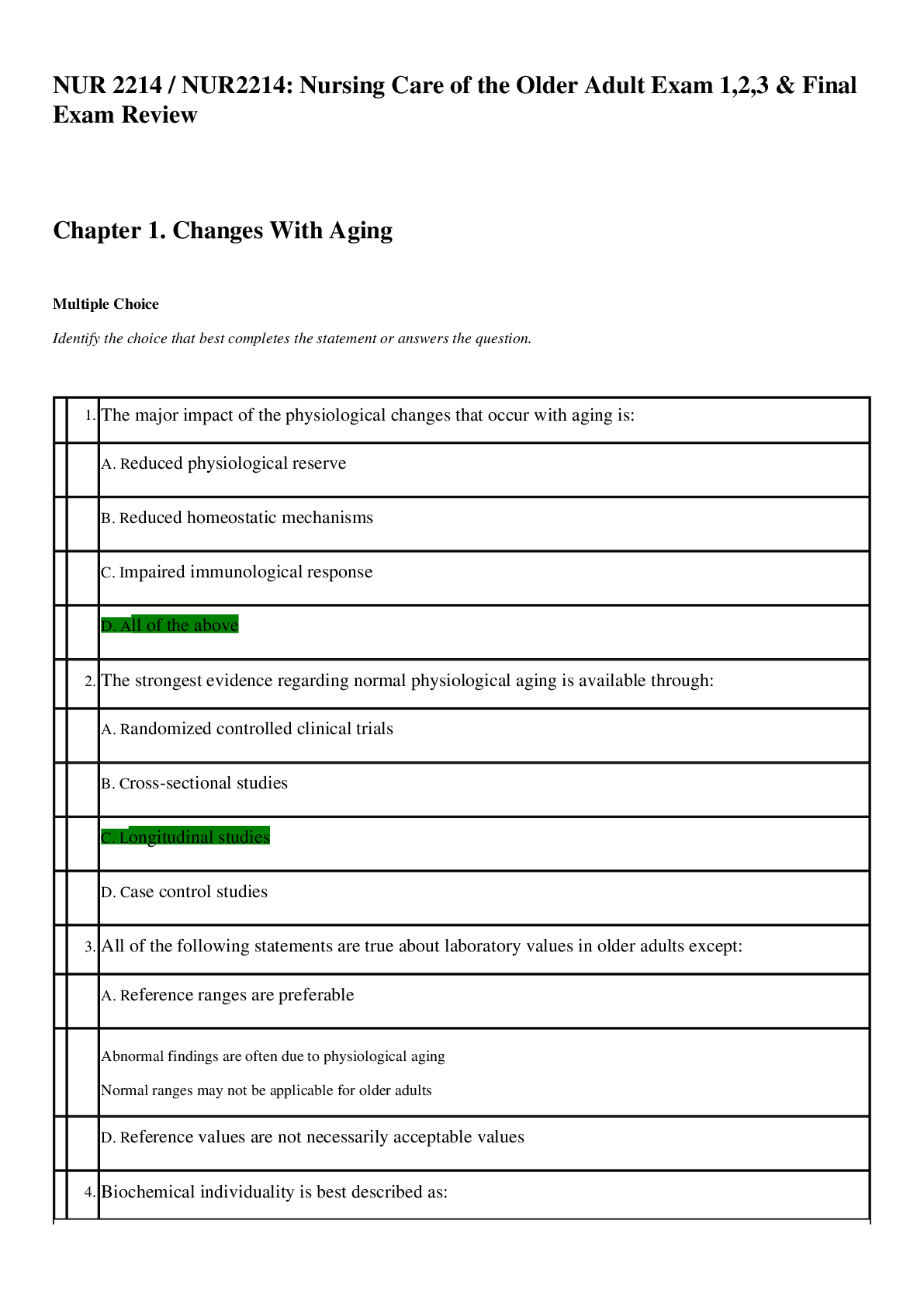NURS 6640 Final Exam Test Bank 300 Questions with Answers-comprehensive.pdf
Document Content and Description Below
Question 1 1 out of 1 points A PMHNP has been treating a 9-year-old patient who was referred by her school. Students are asked to raise their hands b efore speaking during group discussion, but the pa... tient seems to blurt out what she wants to say without being called on. She also interrupts other children while they are talking instead of waiting her turn. When the patient gets frustrated, she has trouble controlling her emotions and cries often. Based on the initial information provided, the first focus by PMHNP is the child’s . Question 2 The PMHNP is caring for a patient who experiences depression caused by the traumatic experience of her dog passing away. She reports not being able to eat or sleep, and sometimes doesn’t want to leave the house at all. Which statement is most appropriate for the PMHNP to maximize the patient’s adaptive coping mechanisms? Question 3 1 out of 1 points A PMHNP is using Gestalt therapy to communicate with a 50-year-old patient who is going through a divorce. As he is calmly sharing the details of his divorce, the PMHNP notices that Dave is tapping his fingers on his legs. What is an appropriate response by the PMHNP using the technique of focusing? Question 4 1 out of 1 points The PMHNP is meeting with an older, female adult patient and her daughter. The patient has early onset dementia. The daughter expresses concern, saying, “I don’t want you to just stick my mother in a home and give her medicine. I’m worried that’s what people are going to want to do.” What is the best response by the PMHNP to the daughter? Question 5 1 out of 1 points A PMHNP is treating a 10-year-old boy who is exhibiting signs of aggression and attention problems. What type of intervention will the PMHNP consider using a common elements approach? Question 6 1 out of 1 points A 35-year-old male patient is being treated for alcohol addiction. He asks for the PMHNP’s cell phone number to use in case of an emergency. When the PMHNP responds that giving her number would be against therapeutic rules, the patient threatens an act of violence to the therapist. What would be the most appropriate response by the PMHNP? Question 7 The PMHNP is caring for an adult male patient whose wife left him several months ago. He recently learned that his ex-wife is dating someone much younger. The man feels belittled, sad, and lonely. He talks about trying to meet other women, but says, “I can’t compete with the younger guys these days, with the cool clothes and the vegan diets. I’m bald and overweight, and what woman is going to want to be with me?” How does the PMHNP help raise the man’s self- esteem? Question 8 1 out of 1 points The PMHNP uses therapeutic communication skills while ensuring that the patient understands that he has choices. The PMHNP comprehends and practices motivational interviewing. This is best understood as which of the following? Question 9 1 out of 1 points The PMHNP is terminating treatment for a patient who has been receiving eye movement desensitization and reprocessing (EMDR) therapy. What action does the PMHNP take at the final session to terminate treatment? [Show More]
Last updated: 2 years ago
Preview 1 out of 91 pages
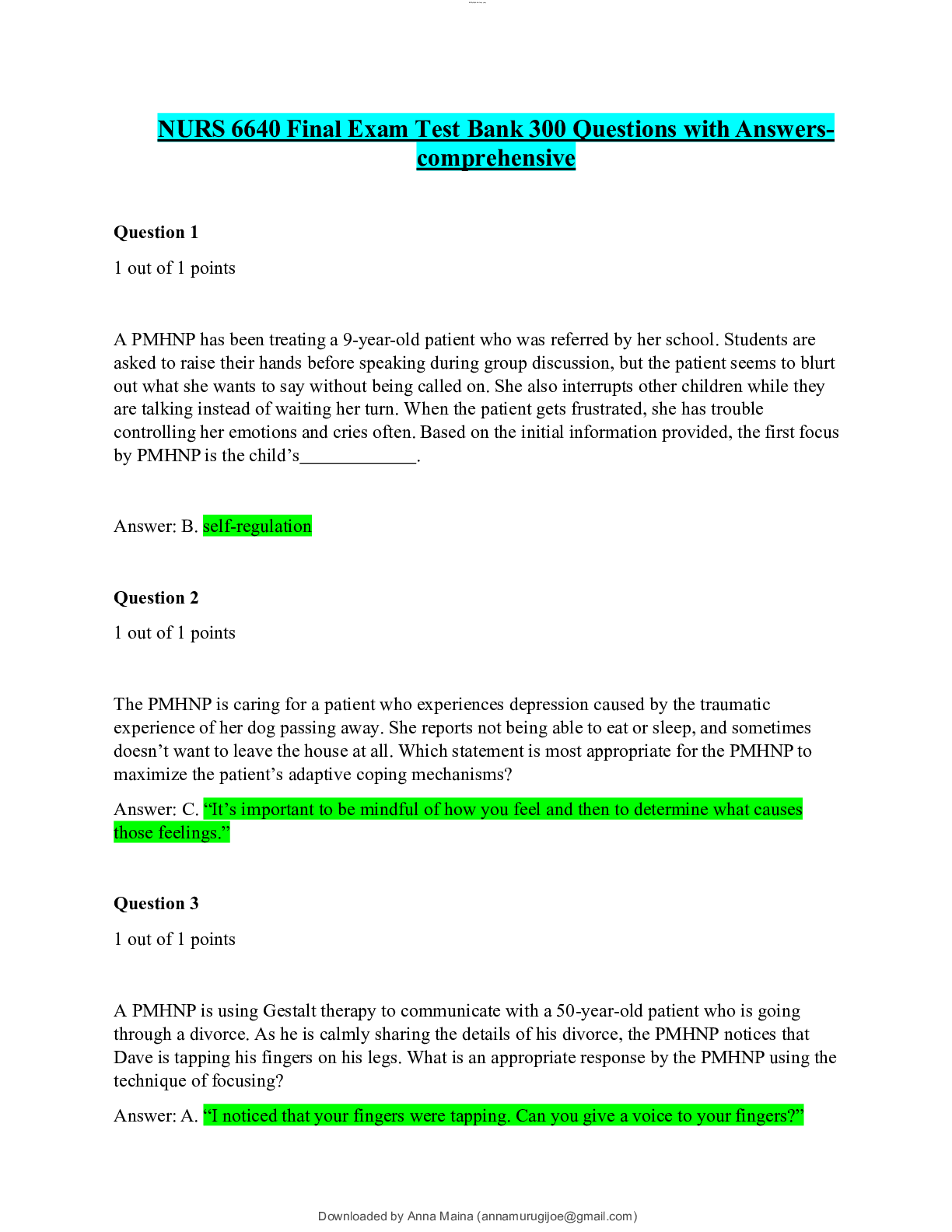
Buy this document to get the full access instantly
Instant Download Access after purchase
Buy NowInstant download
We Accept:

Reviews( 0 )
$13.00
Can't find what you want? Try our AI powered Search
Document information
Connected school, study & course
About the document
Uploaded On
Mar 19, 2022
Number of pages
91
Written in
Additional information
This document has been written for:
Uploaded
Mar 19, 2022
Downloads
0
Views
77



